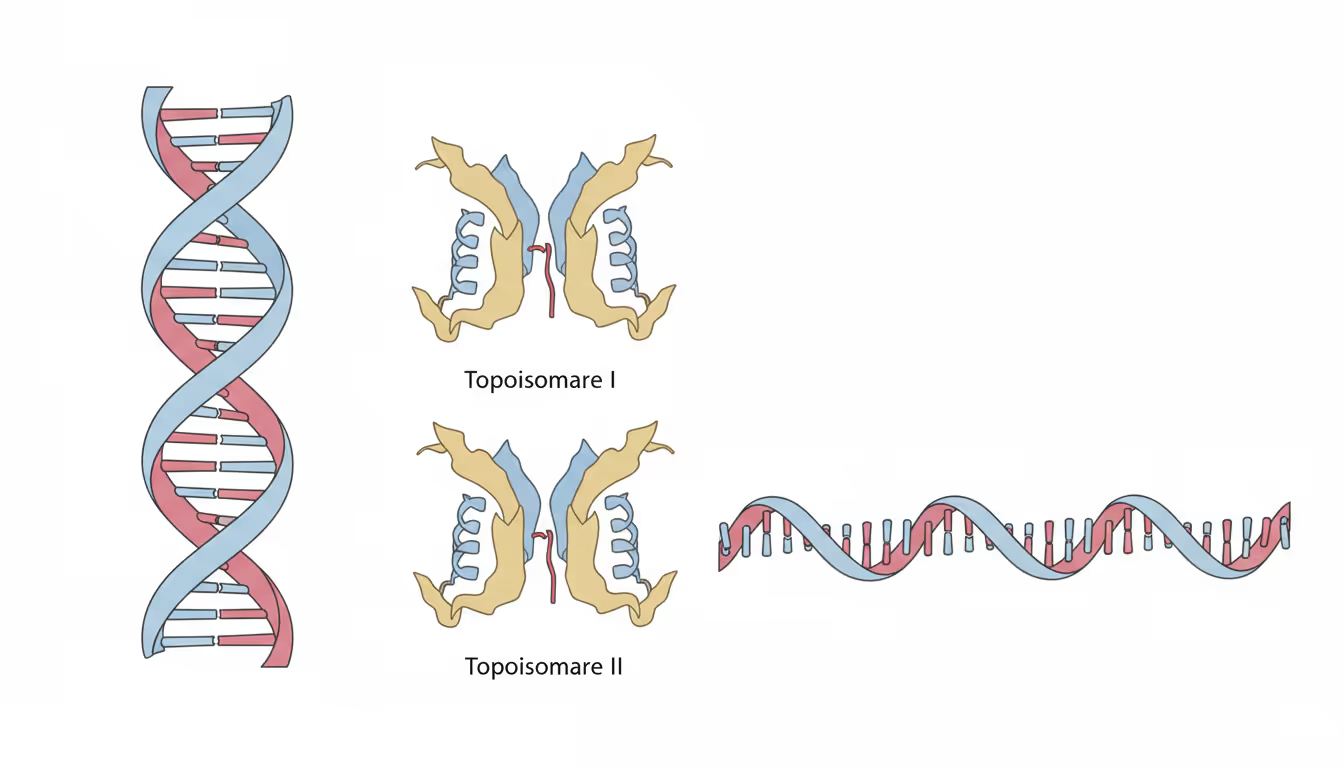
Topoisomerase refers to a group of enzymes responsible for modifying the supercoiling of double-stranded DNA. In supercoiling, the DNA twists upon itself, similar to an old-fashioned telephone cord, which effectively shortens the length of the molecule. Topoisomerases facilitate this process by temporarily breaking either one or both strands of the DNA helix. Topoisomerase type I cuts a single strand, whereas type II severs both strands to relax the coil and lengthen the DNA molecule. Managing DNA supercoiling is essential for transcription and replication, as the DNA helix needs to unwind to allow the enzymatic machinery to function correctly during these processes. Topoisomerases are vital for ensuring the successful transcription and replication of DNA. In addition to topoisomerases I and II, other types have been identified. For instance, topoisomerase III might play a role in regulating recombination, while topoisomerase IV is involved in the separation of newly replicated chromosomes.




